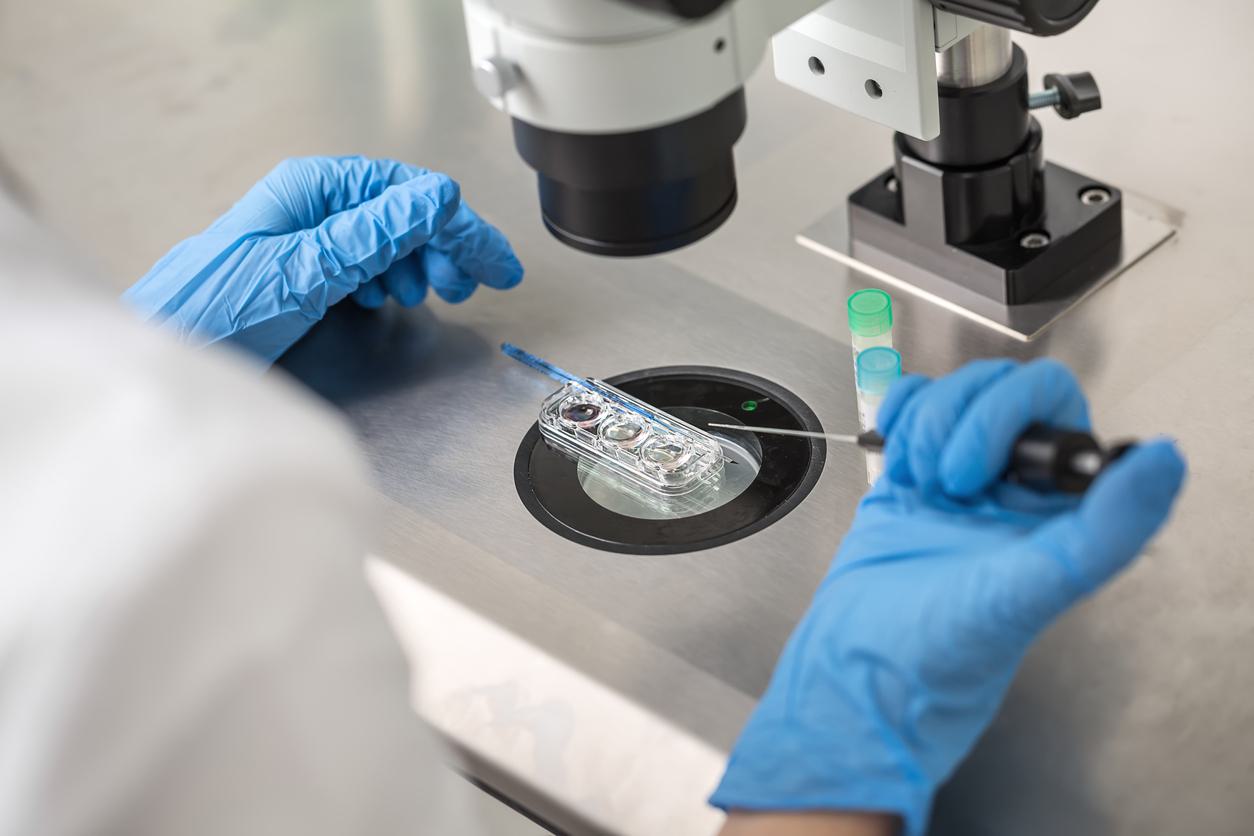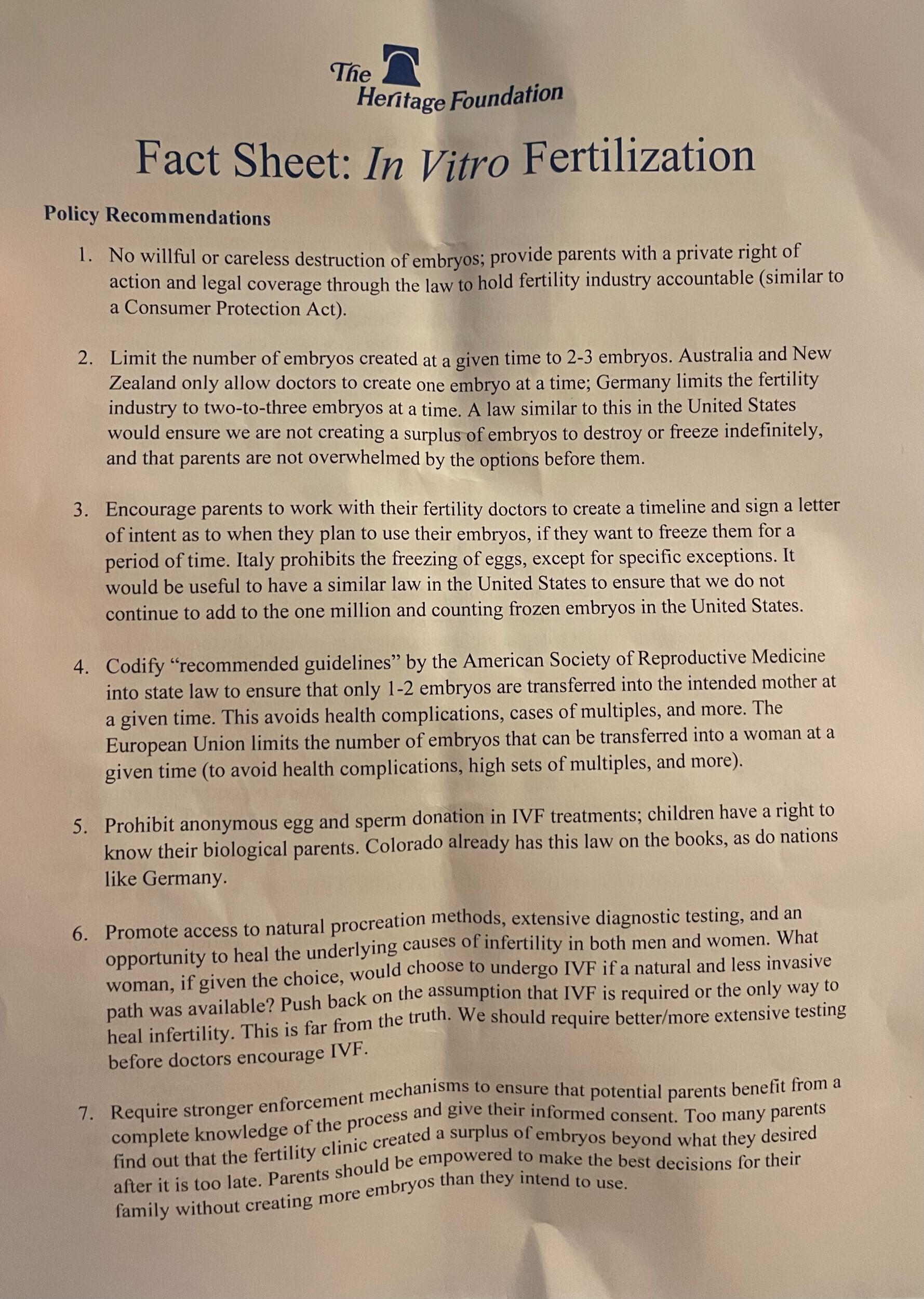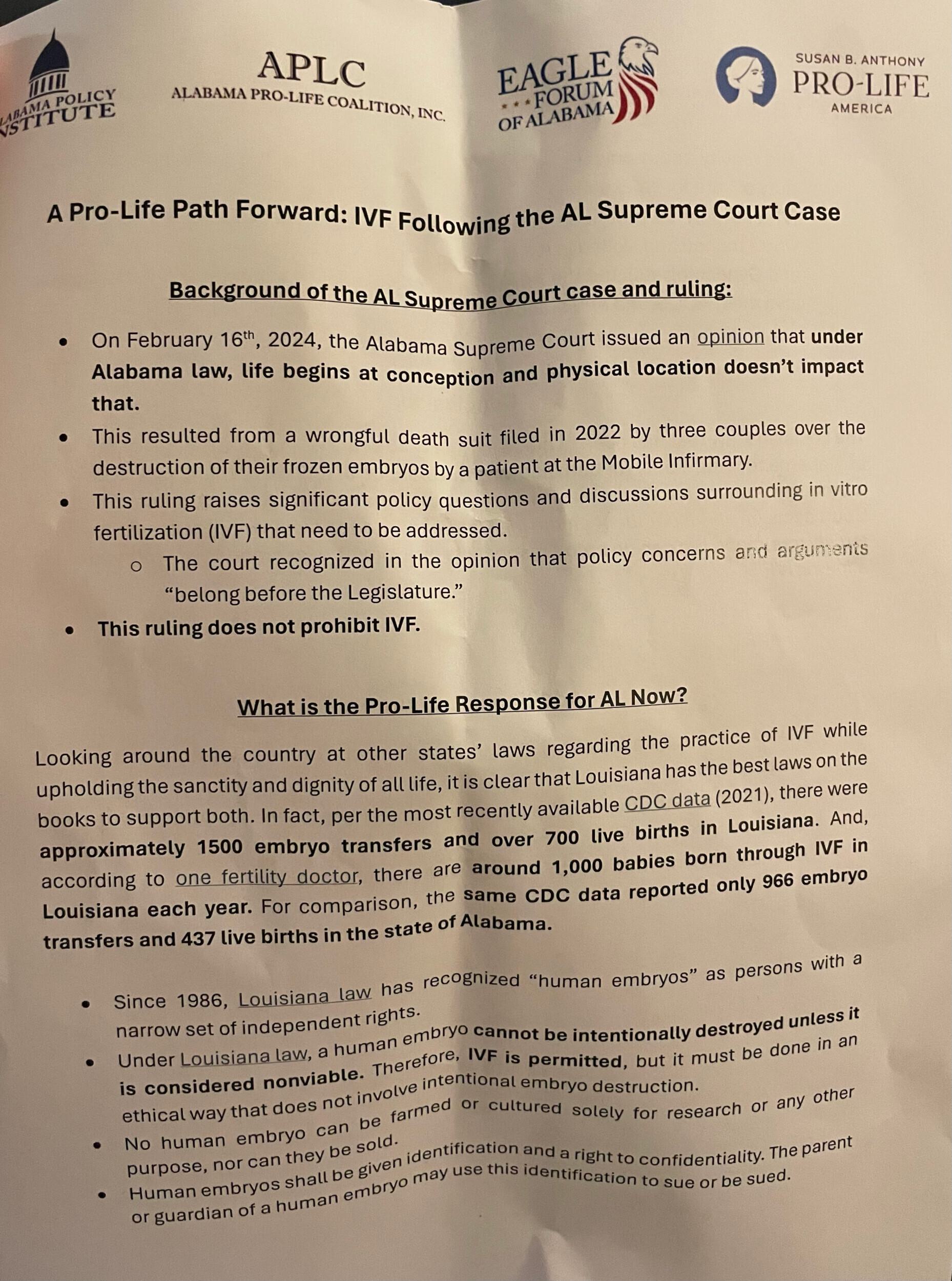MONTGOMERY — Even though both houses of the Alabama Legislature passed bills to grant immunity to in-vitro fertilization (IVF) clinics, lawmakers are likely not done with addressing the issue that has grabbed national attention in recent weeks.
The legislation came after many IVF clinics in the state halted services after a case originating from Mobile, LePage v. Mobile Infirmary Clinic, Inc., the Supreme Court held in a 7-2 decision that parents of frozen embryos killed at an IVF clinic when an intruder tampered with a freezer may proceed with a wrongful death lawsuit against the clinic for alleged negligence.
Both the House and the Senate dropped bills to get the clinics back up swiftly and operational, both of which passed on Thursday.
SEE: Alabama House passes IVF immunity bill after lengthy debate
Despite ultimately voting for the bill, many lawmakers expressed an ardent desire to see IVF practices analyzed further. The concern for many comes from the commonplace practice of discarding unused or unwanted embryos. While thawing and discarding embryos is standard, others are given to scientific research.
Additionally, concerns exist for embryos created and frozen that are abandoned by parents and left on ice.
Fertility clinics are not required by the Centers for Disease Control and Prevention (CDC) to report the number of abandoned embryos. One 2018 estimate said that approximately 1 million cryopreserved embryos in the United States were abandoned. The same paper conservatively estimated that at least 90,000 embryos have been abandoned by their owners.
"One of my main concerns is, of course, the embryos that are unused," State Rep. Mark Gidley (R-Gadsden) stated during the House debate. "I am also concerned about those entities who may take advantage of these families by using their embryos that are not respectful to life. And I can't stand for that. I can't tolerate that."
During the House Debate, State Rep. Ben Harrison (R-Cartwright) attempted to add an amendment to create an IVF ad-hoc policy study committee.
The bill's sponsor, State Rep. Terri Collins (R-Decatur), did not want to amend the bill for expediency. However, she expressed a desire to see the legislature closely examine IVF practices.
State Rep. Ernie Yarbrough (R-Trinity) also expressed concerns with IVF and the practice of discarding embryos.
"I was told things like, 'We need to be able to discard embryos the parents don't want,'" Yarbrough said. "I was told things by doctors in lab coats that we need to be able to test and discard embryos that we think may have genetic issues. I was in shock. You mean like Down syndrome babies? You mean like special needs babies?"
House Speaker Nathaniel Ledbetter (R-Rainsville) said IVF procedures are "Pro-life, period." However, he seemed amenable to a study commission to closely examine policies.
"I do think there needs to be a long-term solution," Ledbetter said. "I think it probably needs to have some doctors involved, professionals to look at it and make sure we get it right. I think it's important that it's right. For right now, the importance was to move something for people who had spent thousands and thousands of dollars, and went through numerous shots to where they could have the embryos."
Without offering a specific timeline, Ledbetter expressed a need to handle the issue speedily.
"I think the quicker, the better," Ledbetter continued. "The people that need to be on it is probably the professionals and they can give us an idea. And when I say professionals, I'm talking about it across the board. I'd like to see it from doctors and scientists, and from the religious side, from the Christian side [to] let us know. I think without question, we've had a lot of people affected. Everybody probably knows somebody that's been affected or somebody that's been born using that procedure, so I think that it's vitally important that we keep it going and continue, but I think it's also important that we get it right."
During the legislative process, several pro-life organizations pointed to other states' practices that lead to fewer discarded or abandoned embryos.
After passing the House, the Alabama Pro-life Coalition released a statement condemning the decision to pass legislation without addressing the substantive issues.
"The Alabama Pro Life Coalition does not oppose IVF. We believe it is a valid method of permitting couples who are unable to have children, to have this option. Our objective is not to compromise IVF in any material way, but to facilitate and continue its availability," the organization said. "Some pro-life groups may, however, oppose IVF."
The statement continued, "We believe the unused embryos should be permitted to be adopted. In all events, those not used, must not be destroyed. We must agree on a humane way to resolve this problem."
"We are very disappointed with the process the Alabama Legislature has followed to address this issue. It appears that UAB has dominated the Legislature's efforts to address the problem. Their effort has been to immunize IVF clinics. Their initial legislation would have provided almost blanket immunity to any clinic or hospital. With the help of trial lawyers, this was corrected. Democrats also made some cogent arguments about the lives of these unborn children," the Alabama Pro-life Coalition added.
To connect with the author of this story or to comment, email craig.monger@1819news.com.
Don't miss out! Subscribe to our newsletter and get our top stories every weekday morning.












